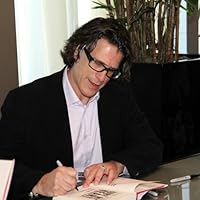Management And Leadership Quotes
Quotes tagged as "management-and-leadership"
Showing 1-30 of 381

“Bob Iger, Disney's chief operating officer, had to step in and do damage control. He was as sensible and solid as those around him were volatile. His background was in television; he had been president of the ABC network, which was acquired in 1996 by Disney. His reputation was as an corporate suit, and he excelled at deft management, but he also had a sharp eye for talent, a good-humored ability to understand people, and a quiet flair that he was secure enough to keep muted. Unlike Eisner and Jobs, he had a disciplined calm, which helped him deal with large egos. " Steve did some grandstanding by announcing that he was ending talks with us," Iger later recalled. " We went into crisis mode and I developed some talking points to settle things down.”
― Steve Jobs
― Steve Jobs

“The first step out of the gate has to be knowing where you want to end up. What do you really want from your company?”
―
―
“...don’t confuse managing your interactions with your superior (i.e., planting seeds) with manipulating them.... if you gain approval to proceed with an initiative and things don’t go as planned, deliver bad news in person. This permits you to respond to questions, assess how the message is perceived, provide clarification, obtain any direction, and most importantly to provide your well-conceived plan to correct the situation”
― Concepts of Managing: A Road Map for Avoiding Career Hazards
― Concepts of Managing: A Road Map for Avoiding Career Hazards
“If we want to be irreplaceable, we have to do our very best to make sure our contribution exceeds our pay by as much as possible. Seeking to understand what explicit impact our boss values about us can be part of the equation.... we should carry out the intent of our position which encompasses performing the job we’ve been hired to do and not just the portion of it we enjoy doing”
― Concepts of Managing: A Road Map for Avoiding Career Hazards
― Concepts of Managing: A Road Map for Avoiding Career Hazards
“You don’t want to be in a situation where you can’t justify your compensation.”
― Concepts of Managing: A Road Map for Avoiding Career Hazards
― Concepts of Managing: A Road Map for Avoiding Career Hazards
“When your manager is conducting a meeting or conference call and presents an idea or goal, they’re looking for commitment to tackle the task. If you start listing all of the reasons why it won’t work or argue unimportant details, your boss will see your effort as adversarial. You become a roadblock preventing everyone in the group from moving forward.... If you have a small concern or issue you want heard, save it for a personal moment later.”
― Concepts of Managing: A Road Map for Avoiding Career Hazards
― Concepts of Managing: A Road Map for Avoiding Career Hazards
“When faced with difficult decisions, painstakingly analyze the situation. Do your homework and be careful not to understate or overstate the impact of pertinent conditions. This includes researching possible consequences and deciding if the department, division, and company can live with them.”
― Concepts of Managing: A Road Map for Avoiding Career Hazards
― Concepts of Managing: A Road Map for Avoiding Career Hazards
“If upper management wants an issue to go away, they’ll allow us the opportunity to fix it. If we have a reputation for rectifying difficulties, they’ll want us to continue these efforts.”
― Concepts of Managing: A Road Map for Avoiding Career Hazards
― Concepts of Managing: A Road Map for Avoiding Career Hazards
“If we don’t have all of the facts at hand, we still need to let the interested parties know that we’re on top of the research but that it will take time. When that information is gathered, inform them in an expedient manner. If employing the solution falls within our authority, implement it as soon as possible. If approval is required, document a request swiftly so any lag time won’t be attributed to our inattention.”
― Concepts of Managing: A Road Map for Avoiding Career Hazards
― Concepts of Managing: A Road Map for Avoiding Career Hazards

“The skills required to be an effective manager are different from those that got you promoted.”
― Managing People
― Managing People

“Leadership is not a one-size-fits-all journey; it's about adapting to the unique needs of each situation and empowering others to thrive in their own way.”
― Crosspaths Multitude to Success
― Crosspaths Multitude to Success

“Questioning conventional wisdom is not a sign of weakness but a mark of a forward-thinking leader ready to adapt and thrive in the ever-evolving business landscape.”
― KISS Life "Life is what you make it"
― KISS Life "Life is what you make it"

“Inclusion to me means participation. You can "include" people but bringing them along to participate is when individuals experience true inclusion. Our job as leaders is to find ways for each individual to participate”
―
―

“Companies don't have a "talent shortage" they have a "development shortage", the talent you need is within reach, you just need to develop them and/or create roles for them”
―
―
“On the first run, two bombs landed within fifty yards of the target. We were shocked but still unbelieving. Someone else chose another target, and on this run the bombs made a direct hit! After three more runs, all with similar results, there was no doubt: all-weather bombing had arrived in the Marine Corps.
On that day, Dalby earned a chorus of supporters. The support was not, however, universal. In the audience was a brigadier general from Washington. After the demonstration, he examined the equipment and was repelled by its obvious tentative condition. He commented that it had no real combat application, that "rain would short out this maze of wires in nothing flat." I heard Dalby declare that he would "never let a general behind the scenes again until I have it packaged up like a box of candy.”
― First to Fight: An Inside View of the U.S. Marine Corps
On that day, Dalby earned a chorus of supporters. The support was not, however, universal. In the audience was a brigadier general from Washington. After the demonstration, he examined the equipment and was repelled by its obvious tentative condition. He commented that it had no real combat application, that "rain would short out this maze of wires in nothing flat." I heard Dalby declare that he would "never let a general behind the scenes again until I have it packaged up like a box of candy.”
― First to Fight: An Inside View of the U.S. Marine Corps

“If we are not attracting, maintaining, or developing the new generation of workers we are also NOT attracting, not retaining and not growing the new generation of customers.”
―
―

“Unmanaged is one of those rare books that helps you see that the answers to your most pressing organizational problems are the opposite of what you thought they were.”
― The Win Without Pitching Manifesto
― The Win Without Pitching Manifesto
“Chuck's prescription for expectation setting is (1) make sure you know what you expect, (2) make sure your people know what you expect, (3) have a way to measure it, and (4) manage to those expectations”
― When They Win, You Win: Being a Great Manager Is Simpler Than You Think
― When They Win, You Win: Being a Great Manager Is Simpler Than You Think

“In appointing you I have only one qualification to make. Colonel Goethals here is to be chairman. He is to have complete authority. If at any time you do not agree with his policies, do not bother to tell me about it - your disagreement with him will constitute your resignation. —THEODORE ROOSEVELT”
― The Path Between the Seas: The Creation of the Panama Canal, 1870-1914
― The Path Between the Seas: The Creation of the Panama Canal, 1870-1914
“In my experience successfully managing diverse teams in a globalized environment demands not only the cultivation of cultural awareness and an inclusive atmosphere where every member feels esteemed but also the capacity to be an astute observer, a meticulous planner, and a strategic thinker. Clear and inclusive communication, supported by technology, bridges geographic divides, while tailored leadership approaches ensure alignment and motivation. A strategic mindset coupled with effective implementation of plans drives the team toward shared objectives. Lastly, proactive conflict resolution and a commitment to continuous learning are critical for maintaining harmony and fostering adaptability within the team.”
―
―
“Effective delegation of tasks to team!
Establishing a culture of trust within your team, encouraging open communication and collaboration is the key. Clearly define the scope and context of each task, providing relevant background information to enhance understanding. Set measurable objectives and deadlines, allowing team members to take ownership of their responsibilities. Foster an environment that promotes continuous learning by encouraging team members to seek feedback and share insights throughout the process. Finally, regularly assess progress and adapt strategies as needed, ensuring that delegation remains a dynamic and responsive process. Draw a distinction between tearing down criticism to building up ( constructive) criticism. This points to communication skills.”
―
Establishing a culture of trust within your team, encouraging open communication and collaboration is the key. Clearly define the scope and context of each task, providing relevant background information to enhance understanding. Set measurable objectives and deadlines, allowing team members to take ownership of their responsibilities. Foster an environment that promotes continuous learning by encouraging team members to seek feedback and share insights throughout the process. Finally, regularly assess progress and adapt strategies as needed, ensuring that delegation remains a dynamic and responsive process. Draw a distinction between tearing down criticism to building up ( constructive) criticism. This points to communication skills.”
―
“I would say 'Integrity first ! Streamlining individual actions for the greater organizational good'.
To restore trust after a stakeholder challenges your decision, acknowledge their concerns and engage in intent listening. Delineate your decision-making process and provide a well-substantiated rationale. Demonstrate a commitment to collaboration and receptivity to constructive criticism. Listen !! for strategic implementation that facilitates progressive results. Serving an organization requires prioritizing the collective good over individual agendas. Finally, fortify the relationship through consistent communication and constructive dialogue to enhance trust.”
―
To restore trust after a stakeholder challenges your decision, acknowledge their concerns and engage in intent listening. Delineate your decision-making process and provide a well-substantiated rationale. Demonstrate a commitment to collaboration and receptivity to constructive criticism. Listen !! for strategic implementation that facilitates progressive results. Serving an organization requires prioritizing the collective good over individual agendas. Finally, fortify the relationship through consistent communication and constructive dialogue to enhance trust.”
―
“In the realm of Value-Centric Management (VCM), the concept of equity takes on a profound significance. It's not just about fairness; it's about recognizing the inherent value and potential within every member of the group.”
― Principles of Value-Centric Management (VCM P.I.P.E(TM)): A framework for Managing & Leading People from a Value-Centric POV
― Principles of Value-Centric Management (VCM P.I.P.E(TM)): A framework for Managing & Leading People from a Value-Centric POV
“When people feel that their opinions matter, they become more invested in the group's success.”
― Principles of Value-Centric Management (VCM P.I.P.E(TM)): A framework for Managing & Leading People from a Value-Centric POV
― Principles of Value-Centric Management (VCM P.I.P.E(TM)): A framework for Managing & Leading People from a Value-Centric POV
“It's imperative for leaders to empower individuals to make decisions. This demonstrates trust and fosters a sense of ownership within the team.”
―
―

“Scientific management, so-called, is an attempt to apply the methods of science to the increasingly complex problems of the control of labor in rapidly growing capitalist enterprises. It lacks the characteristics of a true science because its assumptions reflect nothing more than the outlook of the capitalist with regard to the conditions of production. It starts, despite occasional protestations to the contrary, not from the human point of view but from the capitalist point of view, from the point of view of the management of a refractory work force in a setting of antagonistic social relations. It does not attempt to discover and confront the cause of this condition, but accepts it as an inexorable given, a “natural” condition. It investigates not labor in general, but the adaptation of labor to the needs of capital.”
― Labor and Monopoly Capital: The Degradation of Work in the Twentieth Century
― Labor and Monopoly Capital: The Degradation of Work in the Twentieth Century
All Quotes
|
My Quotes
|
Add A Quote
Browse By Tag
- Love Quotes 98.5k
- Life Quotes 76.5k
- Inspirational Quotes 73.5k
- Humor Quotes 44k
- Philosophy Quotes 30k
- Inspirational Quotes Quotes 27.5k
- God Quotes 26.5k
- Truth Quotes 24k
- Wisdom Quotes 24k
- Romance Quotes 23.5k
- Poetry Quotes 22.5k
- Death Quotes 20k
- Life Lessons Quotes 20k
- Happiness Quotes 19k
- Quotes Quotes 18k
- Faith Quotes 18k
- Hope Quotes 18k
- Inspiration Quotes 17k
- Spirituality Quotes 15k
- Religion Quotes 15k
- Motivational Quotes 15k
- Writing Quotes 15k
- Relationships Quotes 14.5k
- Life Quotes Quotes 14.5k
- Love Quotes Quotes 14.5k
- Success Quotes 13.5k
- Time Quotes 12.5k
- Motivation Quotes 12.5k
- Science Quotes 12k
- Motivational Quotes Quotes 11.5k



